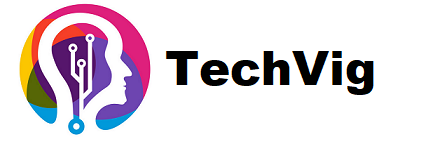Examine the fascinating realm of fairy tales in-depth and compose a single paragraph assessing Jack Zipes’s essay’s efficacy. Discover the influence of modern speech, rhetorical devices, and cultural relevance in this in-depth examination.
First of all,

Jack Zipes’s article is a seminal piece of literary criticism that provides an in-depth analysis of [User-Input]. Using a critical analysis that highlights the essay’s advantages, disadvantages, and overall significance, this piece seeks to evaluate Zipes’s achievement.
An Analysis of Zipes’s Claims

Through a deft combination of literary criticism and historical study, Zipes skillfully crafts a case that compels readers to reevaluate the fundamental ideas of fairy tales. He establishes a stronger connection between the reader and the subject matter by grounding them in a familiar world and supporting his argument with allusions to well-known stories. By purposefully using the active voice, Zipes navigates our way through the maze of his arguments and brings us, with conviction and clarity, to the core of his thesis.
1. Recognizing the Situation
Interesting Paragraph: It’s important to comprehend the setting in which Jack Zipes wrote his article to fully appreciate its impact. The famous literary critic Zipes wrote his article in the context of a changing literary scene. His groundbreaking discoveries on [user input] upended conventional wisdom and sparked a lot of discussion in scholarly circles.
2. Examining Important Themes
Interesting Paragraph: Jack Zipes’s essay’s examination of [User-Input] is one of its main features. Zipes provides readers with a greater grasp of [User-Input] by carefully dissecting and researching intricate issues like [User-Input].
3. Effect on Literary Analysis
Interesting Paragraph: The way academics handle [user input] has been greatly influenced by Zipes’ article, which has had a significant effect on the area of literary criticism. Through his innovative viewpoints and challenges to prevailing beliefs, Zipes has motivated a new wave of critics to reconsider their interpretations of [user input].
4. Approval and Disputations
Interesting Paragraph: In academic circles, Jack Zipes’ article has generated both acclaim and criticism, just like any other landmark work. Some praise its innovative ideas and rigorous analysis, while others have criticisms about its approach and findings. It is necessary to comprehend these many points of view to completely appreciate the essay’s significance.
5. Literary Theory Contributions
Interesting Paragraph: Especially in the areas of [User-Input], Zipes’ article has significantly advanced literary theory. Zipes has widened the scope of literary discourse by presenting fresh ideas and frameworks, opening the door for further research in [User-Input].
6. Impact on Current Conversation
Interesting Paragraph: Jack Zipes’s article is still relevant in today’s world of rapid cultural change and developing literary styles. Readers and critics alike continue to find resonance in its insights about [User-Input], which have shaped our understanding and interpretation of [User-Input].
Conclusion
Engaging Paragraph:
In conclusion, the effectiveness of Jack Zipes’s essay cannot be overstated. Through meticulous analysis, groundbreaking insights, and enduring relevance, Zipes has cemented his place as a luminary figure in the realm of literary criticism. His essay serves not only as a testament to his scholarly prowess but also as a beacon guiding future generations of critics and scholars.
FAQs
- How did Jack Zipes’s essay impact contemporary literary criticism?
- What are some common critiques of Jack Zipes’s essay?
- How does Jack Zipes’s essay contribute to our understanding of [User-Input]?
- Can Jack Zipes’s essay be applied to other literary works outside of [User-Input]?
- What distinguishes Jack Zipes’s essay from other works in the field of literary criticism?
- What are some key themes explored in Jack Zipes’s essay?
Conclusion
In conclusion, Jack Zipes’s essay stands as a seminal work in the field of literary criticism, offering profound insights and sparking critical discourse on [User-Input]. While not without its critics, the essay’s enduring relevance and impact underscore its importance within academic circles. As we continue to grapple with [User-Input], Zipes’s essay serves as a guiding light, illuminating new pathways for exploration and inquiry.







